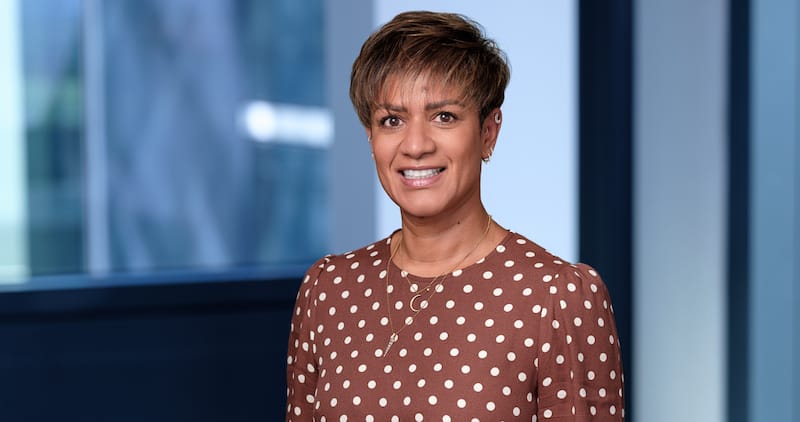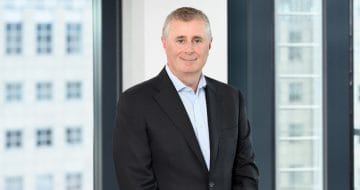Taylor Wessing partner Leona Ahmed discusses her life at the firm

Having joined Taylor Wessing in Spring 2023, Leona Ahmed says she’s “settling in really well” as a new partner in the firm’s real estate, environment and planning team. Driving her decision to move to join the leading firm was its stellar real estate reputation, strong international offering and of course, the people.
“One of the things that struck me very early on was that there are lots of people who have been at the firm a very long time, from partners, associates, support teams, PAs and many others,” she explains. “They are the guardians of the firm’s culture. That doesn’t mean it wasn’t easy to integrate — everyone was very welcoming and open to hearing new ideas and things we can do differently.”
So what does Ahmed’s day-to-day look like as a real estate lawyer and a law firm partner? “I’ve got some key components that make up my day — an important part of that is talking to clients about what they are looking to do; whether that’s buying, selling or recalibrating a building. Sometimes, we consider strategic growth for their business in new markets or sectors. Another aspect is focusing on the career development of junior lawyers within my team. Lastly, there is also working with colleagues in other parts of the firm — whilst I am a real estate specialist, I work a lot with tax structuring and finance lawyers as they are also vital parts of the transactions I work on”, Ahmed explains.
While the real estate market is no doubt a different arena post-Covid, Ahmed notes that the change is one being seen by a range of other sectors as well. “One of the positives of the UK real estate market is that it has always attracted investment from overseas, as it is seen as a safe market, and a relatively liquid market”. She adds that this is supported by a well-respected and trusted legal system.
Ahmed says that her clients are generally based in Asia and the Middle East and goes on to tell me about some of the recent deals she has worked on. One of her highlights is the recognisable Battersea Power Station, where she worked on the sale of the Power Station itself.
She also discusses buying the site for the new Chinese embassy site near the Tower of London, an “unusual transaction, as the site becomes sovereign land belonging to China”. So, rather uncharacteristically for her regular real estate work, this deal saw Ahmed spending a lot of time in discussions with various UK government departments, such as the Foreign Office, about how the transaction would be treated. “It’s a different beast altogether”, she confesses. “You’ve got to see it as more of navigating diplomacy and its protocols, than real estate”, says Ahmed.
I went on to ask Ahmed about her views on the impact of rising interest rates on the real estate sector, and the role of a lawyer in navigating this for their clients. “This is a macro-economic environment that all businesses are having to navigate. Its impact on the real estate industry is significant, because most people, whether they are buying a home or an office building, will probably have to factor in the cost of borrowing money”, notes Ahmed.
That said, she also explains that there are a range of entities who buy real estate who cannot take debt, such as pension funds. The flipside, however, is the fact that they will want prices to reflect the fact that they are using pure equity and so need to reflect that in their returns.
“Moreover, there are also some investors who hold equity and can buy now and add the debt element to the transaction later, once the debt terms improve”, adds Ahmed. This entails a careful balancing act between buyers’ and sellers’ expectations around pricing and risk that real estate lawyers need to navigate in today’s economic climate.
Another notable feature of the current environment is clients seeking advice about how to structure a deal in order to maximise their returns on the transaction – “looking at which structure best suits the tax position of the investors so we can make a deal more financially viable”, clarifies Ahmed.
Ahmed went on to discuss the role of sustainability as a metric in real estate transactions today, noting that this is not a new development, but has been around in the sector for quite some time now – “it’s higher up the agenda now, for sure”, she notes.
“What has been really significant since the pandemic is that when people are looking for new office space in particular, the ESG credentials of those buildings are much more important to tenants. They want wellness areas and more open space for their people. They are not content with just a desk and a chair and want more facilities from their workplace”, she notes. “Most business will have their own ESG measures they are seeking to meet, so when they are looking to lease a building, they want to be able to show their stakeholders how the space contributes to that objective”, notes Ahmed.
The implications of this on the real estate market are multi-fold, she points out. Developers are now having to think very carefully about where they are sourcing their materials from and reusing materials as well as possibly what work opportunities they are giving to people in the local community, how they are providing for those affected by the developments, and so on. “All the players in the real estate world, from the developers, funders, investors and tenants are all considering ESG credentials and we will continue to see this focus”, explains Ahmed.
We also spoke about the future of the retail sector post-Covid, given the rhetoric around ‘the death of the high street’. Ahmed notes that this too, is not a recent development, and that what we are witnessing now is another iteration of something that has been affecting retail for a while.
She points out that this consideration first emerged with the rise of covered shopping centres, followed by online shopping changing shoppers’ patterns over the past decade. She also points out a further nuance post-Covid. “Some local communities have actually seen an improvement in their high street after the pandemic, as more people are working from home and want to be able to pop out to a local coffee shop or grocery store in their breaks”, observes Ahmed.
To finish up, I asked Ahmed what advice she has for students and young lawyers who want to build up an international practice like her and develop global client relationships. “I didn’t set out to have an international client base”, says Ahmed. “If you decide you want to become a real estate lawyer, the most important thing is to understand the assets. When I travel to go see clients in Asia and the Middle East, we rarely talk about the law per se — what they want to know is what the market is looking like in terms of pricing, debt terms and distress in the market”, she explains. The crucial aspect is to be a rounded advisor to your clients who are often investing outside of their home market and your understanding and integration into that market is valuable, Ahmed notes.
Leona Ahmed will be speaking at ‘Real estate lawyers reshaping the future — with Taylor Wessing’ a virtual student event taking place on 2 October 2023. Apply now.
About Legal Cheek Careers posts.


